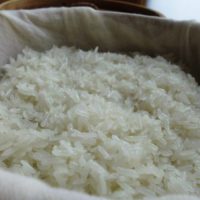In Bujumbura markets like in other markets of the country, the price of staple food products is rising considerably. – By Lorraine Josiane Manishatse
According to a report from ABUCO, the Burundian Consumers’ Association, staple food products prices are increasing in a frightening way, at Bujumbura City Council and all over the country.
For Cynthia Bampoye, a beans’ trader in Kinama market, there is an outstanding lack of beans. When people find the product, the price is very high.
“The price of one kg of ordinary beans commonly called Kirundo, has moved from 750 to BIF 900, and for yellow beans from 1100 to BIF 1300,” she states.
It is the same case for potatoes and rice. “As there is a shortage of rice from Tanzania, its price has risen in a very spectacular way going from 1600 to BIF 2000, even the cost of rice cultivated in Burundi continues to go higher and higher and day after day” states Jean Marie Masabarakiza, a trader in Ngagara Market.
“Now one kg of potatoes commonly called Ruhengeri costs about BIF 900, whereas it was BIF 700, and a kg of potatoes cultivated in Burundi has moved from 650 to BIF750,”he points out.
Many factors justify the rising price
According to Noel Nkurunziza, the Chairman of ABUCO, it is normal that the cost of staple food products increases. There are several meaningful factors that prove it: the new policy of taxing again very essential products (first necessity products), the rising of taxes in general and traders’ speculations in particular. Moreover, local products are not sufficient for the whole population, as we depend on imported goods.
Another no less important factor is the depreciation of Burundian Franc in comparison to foreign currencies.
“The BIF is depreciating considerably, there is lack of foreign currencies, whereas we nearly depend on imported products,” he says.
Strong measures are pertinent to avoid expensive life
Nkurunziza calls upon the Minister of Trade, Industry, Posts and Tourism, to regulate and follow up the price of products, in order to avoid traders’ speculations.
“They must leave their offices and go to field to be aware of what is happening. In that case, they will know the reality of the country and take adequate measures,” he suggests.
The government should adopt a good policy of taxing staple food products by reducing taxes to allow people to have good living conditions. The measure of increasing VAT on some products at 10% should be avoided for consumers’ well-being.
Nkurunziza invites consumers to adjust to hard and expensive life by reducing some useless familial or social parties and feasts demanding a lot of expenses.
He recognizes that many traders have lost a lot of things when the market burned either in Bujumbura or in the countryside. However, consumers should not be victims; traders have to make logical benefits from what is possible and feasible.

















 IWACU Open Data
IWACU Open Data

